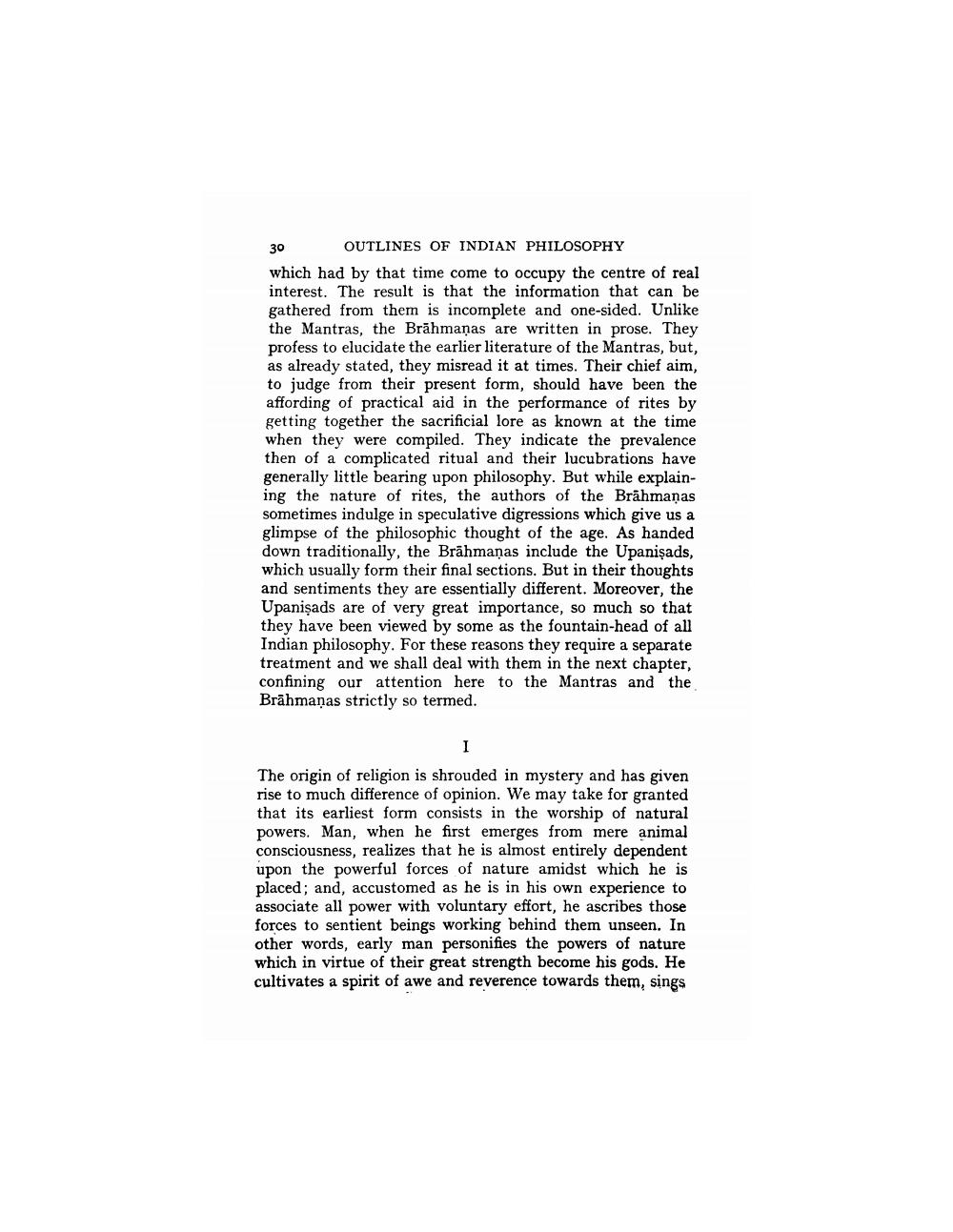________________
30
OUTLINES OF INDIAN PHILOSOPHY which had by that time come to occupy the centre of real interest. The result is that the information that can be gathered from them is incomplete and one-sided. Unlike the Mantras, the Brāhmaṇas are written in prose. They profess to elucidate the earlier literature of the Mantras, but, as already stated, they misread it at times. Their chief aim, to judge from their present form, should have been the affording of practical aid in the performance of rites by getting together the sacrificial lore as known at the time when they were compiled. They indicate the prevalence then of a complicated ritual and their lucubrations have generally little bearing upon philosophy. But while explaining the nature of rites, the authors of the Brāhmanas sometimes indulge in speculative digressions which give us a glimpse of the philosophic thought of the age. As handed down traditionally, the Brāhmanas include the Upanişads, which usually form their final sections. But in their thoughts and sentiments they are essentially different. Moreover, the Upanişads are of very great importance, so much so that they have been viewed by some as the fountain-head of all Indian philosophy. For these reasons they require a separate treatment and we shall deal with them in the next chapter, confining our attention here to the Mantras and the Brāhmanas strictly so termed.
The origin of religion is shrouded in mystery and has given rise to much difference of opinion. We may take for granted that its earliest form consists in the worship of natural powers. Man, when he first emerges from mere animal consciousness, realizes that he is almost entirely dependent upon the powerful forces of nature amidst which he is placed, and, accustomed as he is in his own experience to associate all power with voluntary effort, he ascribes those forces to sentient beings working behind them unseen. In other words, early man personifies the powers of nature which in virtue of their great strength become his gods. He cultivates a spirit of awe and reverence towards them, sings




